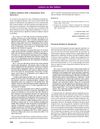Search
forLearn
5 / 5 resultslearn Osteopontin
signaling protein that, when suppressed, may grow hair by reducing inflammation and stem cell loss
learn Stem Cell Factor
learn Vascular Endothelial Growth Factor
learn Overview
Research
5 / 1000+ results
research Summary of Findings on Psychotropic Medications
Second-generation antipsychotics offer no significant benefit over first-generation ones for schizophrenia.

research Reporting on Adverse Clinical Events
The FDA warned about safety issues with remdesivir and tofacitinib, finasteride is linked to suicidality, potent topical corticosteroids increase osteoporosis risk, henna can cause hemolysis in G6PD deficiency, chemotherapeutic agents can cause adverse reactions, drug interactions are common in cancer patients, ketamine can reduce at-risk drinking, high dose of anticholinergics increases dementia risk in Parkinson's patients, and prenatal exposure to second-generation antipsychotics increases pregnancy complications.

research Childhood Onset Trichotillomania: A Retrospective Analysis of 78 Cases Visiting Tertiary General Hospital
Children with trichotillomania often pull hair from their scalp and may have other mental health issues.

research Sudden Akathisia After a Ziprasidone Dose Reduction
Lowering the dose of ziprasidone can cause sudden restlessness and urge to move in patients.

research Forum
The document concludes that various medications and treatments can have significant, sometimes adverse, effects on health outcomes.
Community Join
5 / 1000+ resultscommunity Zyrtec (Cetirizine) antihistamine for hair growth compared to Minoxidil NIH study
The conversation discusses the potential of topical cetirizine (Zyrtec) for hair growth in comparison to minoxidil, noting cetirizine's ability to reduce prostaglandin D2, which inhibits hair growth. Users share mixed experiences with cetirizine for allergies and scalp health, and there's a mention of the risk of dementia with long-term antihistamine use.
community The Big Fat Layer / Remedies: Cetirizine
Treating hair loss with various remedies, such as Cetirizine and the Big3 complex (minoxidil, finasteride, and RU58841), which have properties like adipogenic, anti-fibrotic and anti-inflammatory. References to research studies are also included.
community If you rank hairloss treatments fin,min,dut are the top 3, what's next?
Dutasteride, finasteride, and minoxidil are considered the top hair loss treatments. Other suggested treatments include Nizoral shampoo, tretinoin, pyrilutamide, zinc, biotin, and low light laser therapy, though opinions on their effectiveness vary.
community Is 2.5MG of Dutasteride everyday basically guaranteed maintenance at the least?
The conversation is about the effectiveness and safety of using 2.5mg of Dutasteride for hair loss. Users discuss the high scalp DHT suppression rates but caution against high doses due to potential side effects and recommend consulting a doctor.
community Every research project and treatment hope is failing it‘s insane
The conversation expresses frustration over the lack of progress in hair loss treatments, with specific mentions of Minoxidil, finasteride, and RU58841. Users discuss the slow development of new treatments and the potential of hair transplants.